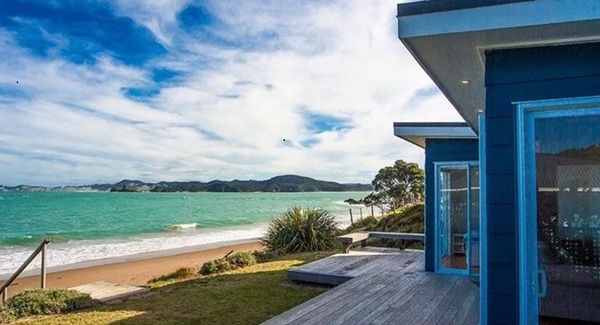Know your tax obligations before landing in the Airbnb world
 New Zealanders are jumping onboard the Airbnb craze, turning their spare space and holiday homes into income generating assets. Particularly this year, we have noticed an increase in clients utilising this latest example of the sharing economy in action. While the benefits sell themselves, you may develop a tax headache if you haven't considered your overall tax position and approach. A little extra income on the side can turn into an unexpected tax bill.
New Zealanders are jumping onboard the Airbnb craze, turning their spare space and holiday homes into income generating assets. Particularly this year, we have noticed an increase in clients utilising this latest example of the sharing economy in action. While the benefits sell themselves, you may develop a tax headache if you haven't considered your overall tax position and approach. A little extra income on the side can turn into an unexpected tax bill.
What is Airbnb?
Put simply, Airbnb connects people online wanting to rent their property (entire property or a set space within a property), with people who are looking for accommodation. Hosts and travellers from over 190 countries worldwide participate in this online global marketplace.
Key issues to consider when entering the Airbnb world as a host
1. Impact on your income tax
Any income earned in a business that intends to make a profit is subject to tax under New Zealand tax laws. Income earned from services like Airbnb must be declared like any other income you earn.
From this you are entitled to deduct costs incurred, much like you would when managing a rental property. Direct costs such as advertising or Airbnb fees are usually fairly obvious, but you can also claim a portion of costs relating to the entire property as well. Some of the factors to take into account when seeking to apportion costs include:
- Area of the house used by Airbnb guests only
- Area of the house shared between Airbnb host and guests
- Total floor area of the property
- How many days the property was used by Airbnb guests
- Over all annual property expenses ie rates, power, internet, insurance, mortgage interest
- Consumables (which are 100% deductible)
- Chattels to depreciate.
As with any income generating activity, it is very important that proper records including invoices and receipts are kept. Not only does this allow us as your Chartered Accountant to correctly complete you tax return, it also ensures that should you be subject to IRD query or audit, you have all the relevant information on hand. The IRD are currently targeting activity in the black economy, which is partly made up of those providing short-term accommodation.
2. Mixed-use asset rules
If Airbnb is the first time you have entered the short-term accommodation marketplace, you may not have previously heard of the mixed-use asset rules. These rules apply where the property is used for income generating activity for only a portion of the year, with the owners using it themselves during other parts of the year.
Where mixed-use is present, deductions available are impacted in that the expenses need to be apportioned between business and personal use, which can have a significant effect on income tax calculations.
These mixed-use rules apply to the full range of ownership structures under which Airbnb ventures can be operated – individuals, trusts, partnerships, companies and look-through companies.
3. Don't forget GST…….
GST consequences are often overlooked. If you are not GST-registered, income you earn from Airbnb, whether in conjunction with other income you earn or on its own, may take you over the $60,000 threshold for mandatory GST registration.
When GST registered, money received from letting through Airbnb will need to have GST accounted for. Further, when you sell the property, you may need to account for GST on the sale.
These are just a few of the GST considerations – there are many more which can get quite complicated. It is best to seek our advice from the outset to ensure you are GST compliant.
4. Other less obvious considerations
- Have you considered whether your insurance policy covers you while the property is rented?
- Are there any council requirements such as notifications or consents that you need to cover? Your local Council may reclassify your property as commercial, which will affect your rates.
- Is your property in an apartment building or similar that may be subject to Body Corporate rules? Some Body Corporates won't allow properties to be used for short-term rental.
- Another important consideration is health and safety. Like any other business, you need to check any requirements under the Health and Safety Act.
We really stress the importance of pre-planning your Airbnb activity and working with us to ensure your structure is correctly set up from the start. There are many benefits you can derive from utilising services like Airbnb, however overlooking the issues we have outlined can cause significant problems down the track.
While not to discourage you in your quest to utilise your property to generate profit, it is important to remember that the thing that makes it easy for you to rent a property on Airbnb is the same thing that makes it easy for authorities such as the IRD and local councils to monitor your activity. Please don't get caught out – contact us for assistance before it is too late!







